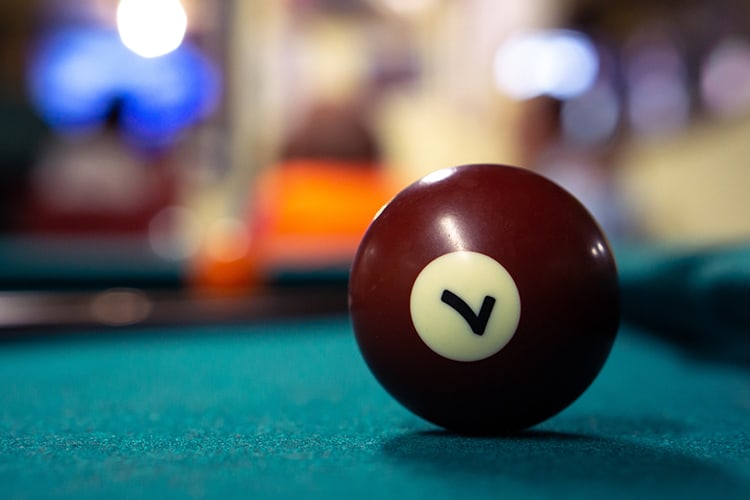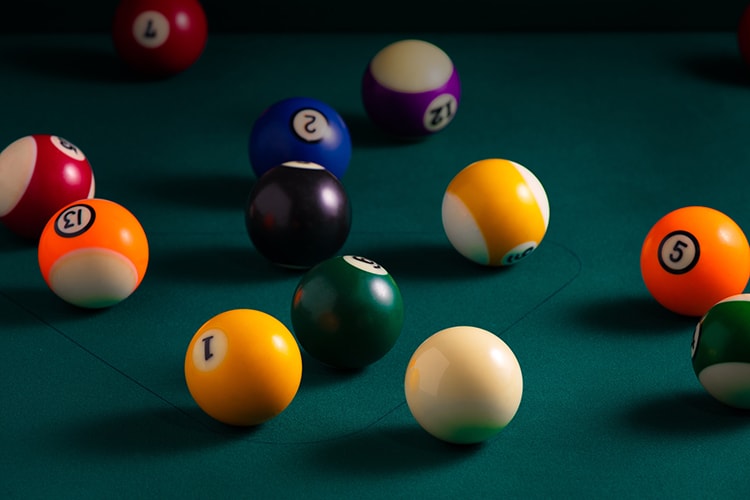When you first brought your pool balls home, they were pristine, shiny, and looked great while you used them, but it doesn’t take long for them to lose some of that fresh-of-the-box luster. Waxing pool balls is probably the first idea that comes to mind.
But should you wax pool balls? Most competitive pool players and the WPA all agree that pool balls should not be waxed or even polished because it makes it hard to pull off shots consistently. It also makes throw shots and spin-transfer shots nearly impossible.
If you’re still eying up your turtle wax, stop right there and keep reading. We explain all the reasons you shouldn’t wax your pool balls and why polishing should be avoided as well.
Why You Shouldn’t Wax Pool Balls
Waxing pool balls undoubtedly makes the balls look fantastic and shiny. And for a while, they will seem to glide across the felt better.
But these minor advantages are worth it when you take a look at how waxing balls impact gameplay. Let’s take a look at what you can expect if you’ve waxed your pool balls:
- The balls will look shiny.
- The balls will glide effortlessly across the table.
- You will probably miscue more often and need to apply chalk more frequently.
- You will need to adjust how you play as the wax wears off the ball.
- You may need to replace your table felt more often.
- Throw shots and spin-transfer shots will be nearly impossible.
- The ball may slide more than it spins.
- Certain waxes (like that meant for cars) could create build up on the balls and table felt.
- You could get a waxy build-up on your pool cue tip.
- You won’t be recreating tournament conditions. Waxed balls are not allowed in tournaments, according to the WPA.
All of these are major issues that can make it hard to play a serious game of pool. However, the biggest problem with waxing pool balls is that you lose the ability to accurately predict how the ball is going to act when you hit it. This is because as you play, the wax that is on the balls will slowly wear off.
Pool balls are standardized for a reason. If you can’t predict what will happen when you hit the pool cue, you’re not playing pool. You’re just hitting balls and crossing your fingers.
Even though you shouldn’t wax or even polish your pool balls, it is essential that you keep them clean. If you notice your pool balls are yellowing, that’s nothing to worry about. You should check out our post Why do pool balls turn yellow?

How to Keep Your Pool Balls Shiny?
So you shouldn’t wax your pool balls or even use a polish on them, but what can you do to keep them shiny? The answer is regular care.
If this doesn’t help restore their shine, it might be time for a new set of billiards balls. Check out our post on the best billiards ball set.
Clean Pool Balls Regularly
You don’t necessarily have to wipe them down after every time you use them (although some people do), but you should clean them using pool ball cleaner, a damp cloth, or a cleaning machine often.
Just like wax can influence how the balls roll, so can dirt and grime. No one wants to play with dirty pool balls. They don’t roll as well and react unpredictably.
Don’t Use Abrasive Cleaner
The only cleaner you should use on pool balls is a cleaner that is meant for the type of pool balls you have or plain old water. Anything else can cause damage. The damage isn’t always visible, but over time, it can lead to your balls becoming pitted or losing their color.
Aramith Billiard Ball Cleaner is a good choice for balls made with a phenolic resin, but if a damp cloth cleans them enough, that is even better.
Don’t Clean Pool Balls in a Dishwasher
The extremely hot water used in a dishwasher, as well as the soap or residue of soap, will damage your pool balls. They may become off white, and your object balls could even lose their color.
It may seem like a good idea, but take our word for it, it’s not.
For easy cleaning, you should invest in a billiard ball cleaner like the Bulletproof Billiard Cleaning Machine.

